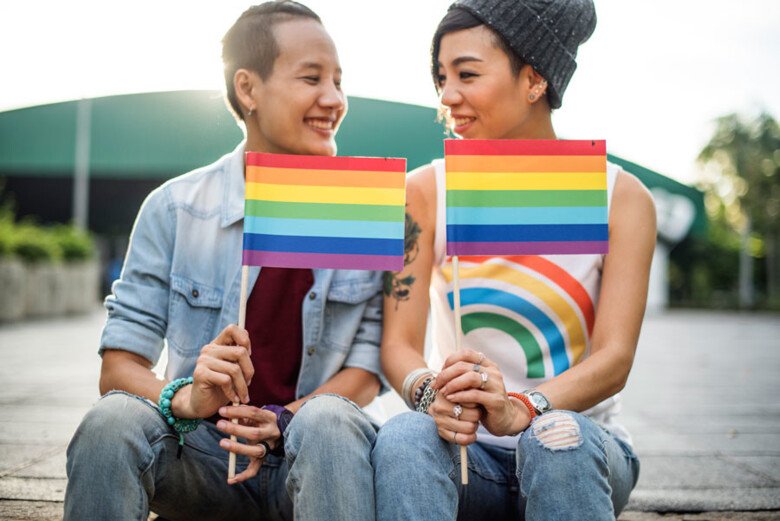"What matters most is how open one can be"
By studying gay men, lesbians and bisexuals in 28 European countries, researchers have demonstrated how a country’s laws and attitudes directly impact the health of its citizens. In Sweden, the health of this group has improved in parallel with changes to legislation and greater acceptance of homosexuality in the population at large.

Text: Johan Sievers, first published in the magazine Medicinsk Vetenskap no 4, 2017.
Over the past decade, the national public health survey, conducted annually in Sweden, has included questions on sexual orientation. The survey clearly shows that lesbian, gay and bisexual (LGB) indviduals as a group experience worse health than heterosexuals. They are approximately twice as likely to suffer from depression and the risk of suicide is 2-4 times greater. The risk of substance abuse is also higher than among heterosexuals.
The positive news is that we are heading in the right direction. Over the past ten years, the percentage of lesbians and gay men subjected to threats and violence has decreased and mental health in the group has improved. This has taken place in conjunction with legislative improvements, such as the inclusion of sexual minorities in hate crime legislation, protection against discrimination in the workplace and gender-neutral marriage. From a research perspective, it is of interest to study this correlation more closely; in what way might social factors influence the large differences we see between the health of LGB individuals and heterosexuals? What do these mechanisms look like?

Richard Bränström, researcher in health psychology at Karolinska Institutet’s Department of Clinical Neuroscience, has studied the situation facing LGB individuals in 28 European countries. By reviewing legislation and measuring the population’s acceptance of homosexuality, he has evaluated the level of stigmatisation LGB individuals face in these countries. This has been compared to the results of questionnaires in which LGB individuals have responded to questions about their life-satisfaction.
“We see a clear correlation. The more a country stigmatises LGB individuals, the worse their mental health. It is unusual to see such a strong correlation between a country’s laws and attitudes, and the health of its citizens,” says Richard Bränström.
Vulnerable minorities
Ill-health among members of vulnerable minorities is often explained by the fact that they are exposed to specific stress factors in the form of the society’s attitudes, discrimination, social exclusion, threats and bullying. Individual factors also come into play. Those who expect to be treated badly often internalise the negative attitudes prevalent in their environment and, in so doing, denigrate themselves as much as the society around them does.
“The factor that above all others affects mental health is how open one can be about one’s sexual orientation. Openness explains most of the differences we see in life-satisfaction between European countries.”
Here, there are enormous differences. In countries such as Romania, Latvia and Lithuania, only 20% of lesbians, gay men and bisexuals are open with their sexual orientation. This is the result of discriminatory legislation and negative attitudes to LGB individuals. By hiding their sexual orientation, people reduce the risk of threats and violence – this does however come at the price of poor mental health.
In Sweden, the situation is much better, with 80% of LGB individuals being with their sexual orientation. They also enjoy better health than their counterparts in the majority of EU countries. Sweden has made great strides in creating a tolerant society for the 2-4% of the population that identifies as lesbian, gay or bisexual. We have fewer discriminatory laws, attitudes are becoming ever more positive and, in many parts of society, people receive training in these issues. In parallel with these developments, the health of the group has improved.
“This demonstrates that if we are successful in changing legislation and attitudes and decreasing discrimination within a society, we also have a direct influence on the well-being of people. It is important to understand this as in Sweden we have a clear policy of equality in health,” says Richard Bränström.
Still suffer from worse health
However, LGB individuals still suffer from worse health than heterosexuals. This applies not only to mental health, with surveys showing that LGB individuals also have worse preventable physical health, for example forms of cancers strongly linked to tobacco smoking.
“We must develop preventative measures primarily to combat mental illness, as this is in turn linked to physical health. We need a coordinated strategy,” explains Richard Bränström.
Richard is currently a visiting researcher at Yale University in the United States, where he is continuing his work on European data. Researchers at Yale are working to develop online support for LGB individuals who live in countries where they feel far too vulnerable to visit a clinic.
“A pilot project is underway with a chat-based support network for LGB individuals in Romania. This is aimed at improving physical health and reducing sexual risk-taking.”
Richard Bränström would like to continue his research on the health of gay, lesbian and bisexual individuals from an international perspective. His research group is currently also analyzing the situation of transgender people in Europe.
“How do societal norms get under the skin and influence health? For me, as a health psychologist, this is an exciting question,” he says.
Homosexuals risk a lesser life-satisfaction
The Swedish national public health survey shows that, in many areas, lesbian, gay, and bisexuals have a worse life situation than heterosexuals.
HB individuals:
- are more frequently exposed to violence, or the threat of violence.
- significantly more often experience financial problems and low incomes.
- have risk-related alcohol habits to a greater extent.
- suffer worse general health.
- suffer from considerably worse mental health, with bisexual women most at risk.
Text: Johan Sievers, first published in the magazine Medicinsk Vetenskap no 4, 2017.
